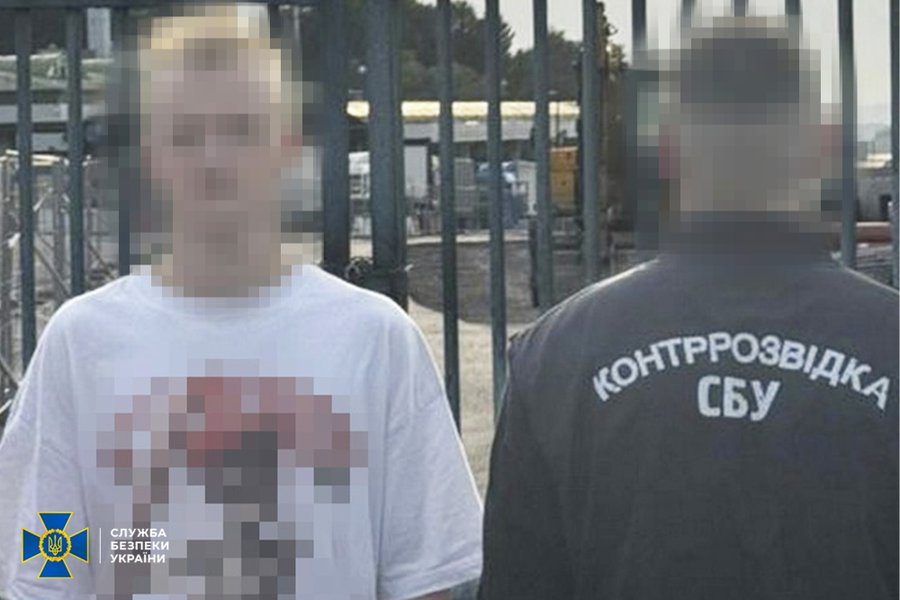The explosions that damaged railway tracks in the east of Poland were the work of two Ukrainians working for Russia, according to the Polish authorities.
The unnamed pair arrived in the country from Belarus in the autumn and returned there within hours of detonating the explosives on the night of November 15.
It has been reported that one of the two was in May of this year convicted of acts of sabotage on behalf of Russia in Ukraine but ended up in Belarus. The other man came from the Donbas region of Ukraine.
The Polish authorities identified the two men by matching fingerprints found on the railway tracks and on a mobile phone from which the explosives were detonated with data provided by Ukraine.
The Polish border authority did not have a photograph of the convicted man in its database and confirmed he had been travelling under a false passport with a different name.
Polish Prime Minister Donald Tusk told the Polish parliament on November 18 that the two men were collaborators of Russian intelligence.
“We are dealing with an unprecedented event. This is perhaps the most serious situation — in the context of Poland’s security — since the outbreak of the full-scale war in Ukraine,” he said.
Since January 2024, a total of 55 people have been detained over alleged sabotage, with each suspect linked to Moscow, Tusk added.
The PM said he would ask the foreign ministry to take action to try to bring the suspects in the latest incident back to Poland to face justice.
“The Russian authorities care not only about the direct effect of such actions but also about the social and political consequences. That is: Disorganisation, chaos, panic, speculation, uncertainty,” he said.
Kremlin spokesman Dmitry Peskov said in response to the Polish claims that “Russia is accused of all manifestations of the hybrid and direct war that is taking place”, especially in Poland, where “Russophobia is flourishing”.
Łukasz Warzecha, commentator with the Do Rzeczy weekly, told broadcaster Radio Wnet that he was not convinced the attack on Poland’s railways was Russian sabotage and pointed out that it was in the interests of Ukraine to have Poland firmly engaged in the ongoing war.
Former Polish president Andrzej Duda in an interview in August claimed that Ukraine has wanted to “drag Poland into the war in Ukraine”, citing an incident in late 2022 when Kyiv insisted it was a Russian rocket that hit Poland killing two farm workers. In fact, the missile had been a stray Ukrainian defence armament that entered Polish territory during a Russian air raid.
The latest attack saw two sections of the Warsaw to Lublin railway line, considered a strategic link between Poland’s capital and the eastern regions bordering Ukraine, targeted over the weekend of November 15-16.
Tracks were blown up near the village of Mika, some 90 kilometres south of Warsaw, with local residents reporting that they heard a blast. Further south, in the region of Lublin railway, tracks were tampered with and a power line cut.
Russia has been accused of regularly recruiting Ukrainians, who are by far Poland’s largest immigrant group, to carry out acts of sabotage and espionage, often contacting them through the Telegram messaging service and paying them in cryptocurrency.
In 2023, 16 people, 13 of them Ukrainians, were convicted in Poland of acting as Russian agents and of planning an attack on trains bringing aid to Ukraine.
In October, three Ukrainians were jailed for their role in a group allegedly tasked by Russia with carrying out sabotage and terrorism in Poland and other European Union countries. That included an arson attack that destroyed a Warsaw shopping centre.
Poland has, since the full-scale Russian invasion of Ukraine, served as a hub for military and humanitarian aid from NATO members and has itself provided the Ukrainians with hundreds of tanks, a dozen MIG fighter jets and other weapons.





